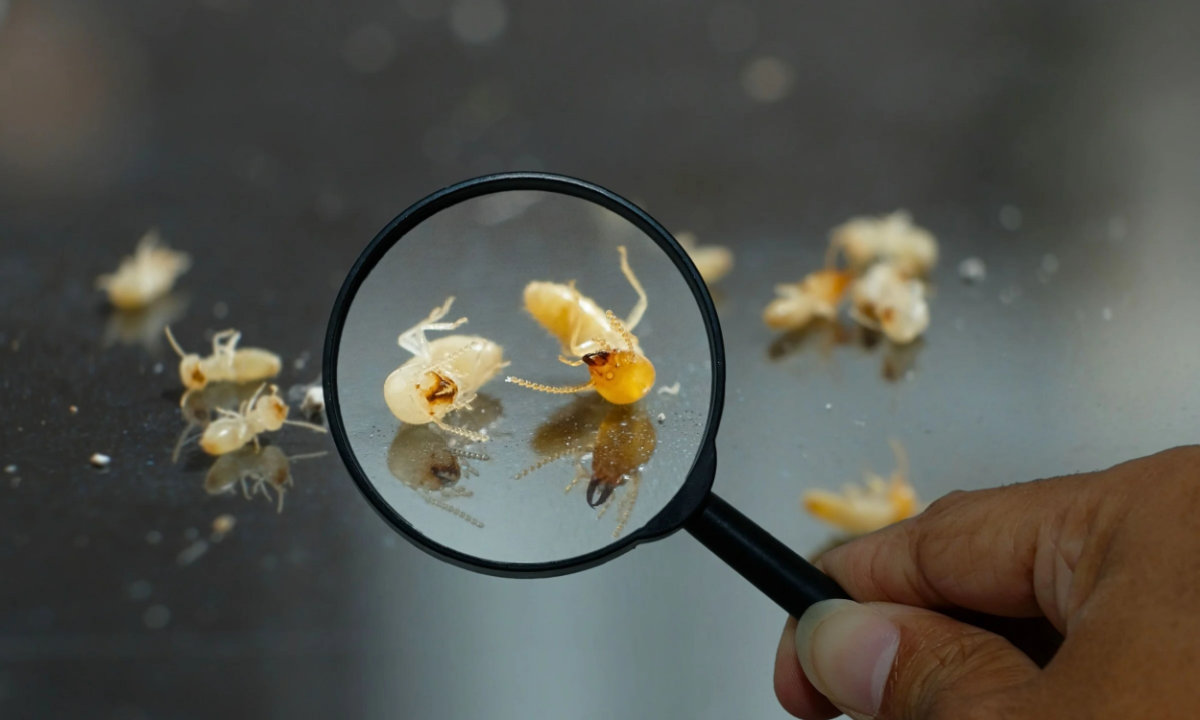With the changing of each season comes a slew of new household pests for many NJ, PA, and NY homeowners.
While some household pests are typically seen as more benign, such as ladybugs, others can quickly become a nightmare if not dealt with promptly.
Understanding the most common bugs present during each season is key when it comes to knowing how to prepare and deal with an infestation.
Here are some of the most common pests throughout the year and tips to prevent them from invading your property.Request a Free, No-Obligation Quote
Request a Free, No-Obligation Quote
Seasonal Pests: Understanding Pest Life Cycles
When it comes to the life cycles of a pest’s life, most go through four main stages:
The length of each stage can vary from pest to pest, as well as other factors like humidity, the weather outside, and access to food and water.
In many cases, insects will lay their eggs during the fall and hatch in the spring.
Therefore, identifying where and when pests lay their eggs will give you better odds to squash them before they multiply.
For this reason, we want to provide a broad overview of the most common insects that enter homes during every season.
Common Bugs of Spring
- Mosquitoes: Typically active in May or June but can appear as early as February in some places
- Ladybugs: Most active between spring and fall. During the colder months, they tend to retreat indoors or seek shelter underneath rocks or in rotting logs.
- Ticks: Typically start to appear from March to May but can be active any time the temperature is above freezing.
- Spiders: Although spiders can live year-round, they are typically most active in late Spring. [Learn more: Common Spiders in New Jersey]
Common Bugs of Summer
- Bees: While bees start to become active in spring, they are most commonly seen during the summer months
- Ants: Ants multiply during the warm summer months and commonly enter homes at the first scent of any sweet or greasy. It’s very common to see a colony of black ants in your house if you do not take steps to control them effectively.
- Fruit Flies: Attracted to ripe or rotting food, fruit flies are most active during the late summer months.
- Pincher Bugs: Pesky earwigs are active during spring and summer, though they tend to be nocturnal and rarely make their way into homes.
- Termites: Most active during the warmer months, termites often make themselves known on a warm summer day after rainfall.
Common Bugs of Fall
- Stink Bugs: Most active in early fall when the weather is still relatively warm, stink bugs can invade any part of your home.
- Cockroaches: If you notice cockroaches or waterbugs in your house during the fall and winter months, it is because these pests are in search of warmth, shelter, and food.
- Beetles: Often mistaken for cockroaches, beetles are most active during the fall in preparation for hibernation. They tend to migrate to any room with warmth and food.
Request a Free, No-Obligation Quote
Request a Free, No-Obligation Quote
Common Bugs of Winter
- Box Elders: Commonly seen on cold winter days, Box Elders typically hide out in basements where it is warm.
- Bed Bugs: These critters seek warmth by making their way inside homes, though they are usually transmitted via second-hand furniture and clothing.
General Pest Prevention Tips
Luckily, most preventative pest control methods will work for pests year-round.
- Keep a clean house
- Carefully inspect packages before bringing them into your home
- Be wary of used items from thrift stores
- Practice proper food storage
- Fix leaky faucets and plumbing
- Maintain the landscaping outside your house
- Seal any cracks and crevices in your home
- Repair broken screens on windows and doors
- Get rid of standing water inside and outside your home
The Importance of All-Season Pest Control
With that said, not all pest prevention tips will be 100% effective.
For example, it can be difficult to keep bees and mosquitos out of your yard, especially if you have a thriving garden or even a bird bath in your backyard.
Similarly, beetles and elder bugs can easily make their way into your home even without a plentiful food source simply because your home has warmth.
Therefore, all-season pest control is imperative to ensuring that pests stay far away from your home throughout the year.
An all-season pest control approach is tailored to the habits and life cycles of the pests most common in your area and targets the pests that are most likely to show up during each season of the year.
Work with your local exterminator to create an all-season pest control plan that repels most forms of pests and insects.
Anchor Pest Control’s Pest Protect 365 offers year-round protection against over 40 species of pests. Contact one of our customer representatives for more information.
FAQs
Can I use the same pest control methods throughout the year?
There are some general best practices we recommend for every pest. However, the pest control method you use should be tailored to the specific pest you are targeting. Even different baits and traps will be designed for different pests.
Can year-round pest control methods help with allergies?
Certain types of pests can trigger allergies for many people, so utilizing year-round pest control can be helpful in keeping those allergens at bay. Be sure to consult with a pest control professional if you are experiencing any unusual allergy-like symptoms, as this may indicate a pest infestation.
Are there natural ways to control pests during all seasons?
There are many ways to reduce the chances of unwelcome pests entering your home throughout the year, from keeping a clean house to repairing any broken screens on your windows or doors. Other natural remedies, such as planting certain herbs in your garden or diffusing essential oils, may also be effective in keeping pests away year-round.Request a Free, No-Obligation Quote



